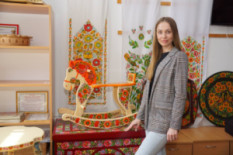The project is being implemented in Ukraine by the NGO "DOCCU" in partnership with the Zurich University of Pedagogy (Switzerland) with the support of the Swiss government.
On July 25, the project launched the selection process within the "DECIDE: Reconstruction. School Restoration Initiative" framework, with financial support from the Swiss government in partnership with the Ministry of Education and Science of Ukraine and the Ministry of Reconstruction. The planned activities include repairing schools, establishing reliable shelters, and creating educational coworking spaces in 25 Odesa, Poltava, and Chernihiv communities. School No. 13 in Chernihiv and the Inclusive Resource Center (IRC) in Borodianka, Kyiv Oblast, will be fully renovated.

The State of Ukrainian Schools during the War
According to the Ministry of Education and Science, since the beginning of the large-scale Russian invasion of Ukraine, over 3000 educational institutions have been damaged, with 337 destroyed. These figures continue to rise as the war persists. Due to air alarms, children in many regions spend 3-4 hours daily in shelters. For example, from 24.02.2022 to 16.07.2023, 1442 air alarms in the Poltava region, 877 times in Chernihiv, and 831 times in Odesa were declared.
All of this hinders the access of the majority of Ukrainian children to education. Children are forced to interrupt their studies due to air alarms or rely solely on distance learning due to inadequate shelters.
Therefore, Switzerland allocates over 4.3 million francs for restoring Ukrainian schools, ensuring uninterrupted education for 15,000 students in shelters during air alarms.
The "DECIDE: Reconstruction" project will be realized with Swiss funding. The process of accepting applications from communities in the three regions has been launched. Up to 25 OTGs will be selected based on the results of this process. These communities will receive grants to establish shelters that meet all safety criteria.
Applications can be submitted until August 2, 2023 (inclusive), and the results will be announced on August 14-15.
Key messages from project partners
 Oksen Lisovyi, Minister of Education and Science of Ukraine:
Oksen Lisovyi, Minister of Education and Science of Ukraine:
"The new academic year will begin in just a couple of months. Ukrainian children should return to full-fledged education. And this will only be possible with safe and modern shelters in educational institutions. I am grateful to the Swiss government for their consistent support of Ukraine! I call on the communities in the Odesa, Poltava, and Chernihiv regions to actively participate in the competitive selection and join the initiative. We must restore access to education for every Ukrainian child!"
Th Minister of Education also emphasized that ensuring schools have shelters and bringing children back to offline learning is essential for providing access to higher-quality education and for the overall development of children who need communication, socialization, and building relationships. Moreover, having well-equipped schools is crucial for allowing women with children, currently abroad, to return to Ukraine, as access to safe education is an essential condition for reverse migration.
In response to our media's question, the Minister stated that local businesses and other countries are also involved in the school restoration efforts, and there are high hopes that together, we will bring children back to school.
Additionally, Oksen Lisovyi mentioned that Ukraine needs to build 3000 shelters in educational institutions. The overall cost of this reconstruction is over 1 billion dollars.

Andreas Huber, Director of the Development Program at the Swiss Embassy in Ukraine, emphasized: "The destruction of schools is the destruction of the future. We are trying to do everything in our power to overcome this. We must involve businesses, other donors - anyone who can help. Switzerland has long been a reliable partner in supporting the development of local governance in Ukraine. In this challenging time, we want to help provide children with quality and safe education. We aim to strengthen communities and do everything possible to have resources for restoration within the communities. And, of course, we want Ukrainian children to have a better future."

Valentyna Poltorak, Project Manager of DECIDE, stated: "Switzerland is allocating over 170 million hryvnias to restore access to safe education for more than 15,000 students, to help children in communities most affected by Russian aggression, where students spend 3-4 hours a day in shelters."
During the following weeks, we will select 25 partner territorial communities where we will renovate shelters in schools and create educational hubs. Additionally, there are two pilot special projects in the initiative, including the restoration of School No. 13, attended by over 1000 children, including those from two destroyed schools.
The second special project is the reconstruction of the Borodianka Inclusive Resource Center, where experts work with children with special educational needs affected by the occupation. Their numbers continuously increase in the de-occupied territories, making the IRC especially crucial.
Every community that becomes our partner will learn how to develop and implement reconstruction projects, organize the process of attracting funds from international donors, and involve young people in these efforts. At DECIDE, we believe that young people from the school benches must actively participate in decision-making processes in territorial communities and feel like citizens of their country whose destiny depends on them.
Responding to DestiNation's question about the nature of these educational hubs, Valentyna revealed an interesting detail - children will also be involved in creating the project shelters since these hubs are designed for them, and they should guide adults on how everything should be arranged.

Oleksandra Azarkhina, Deputy Minister for Community Development, Territories, and Infrastructure, emphasized: "This is an essential initiative, especially on the eve of the new academic year. Restored schools or kindergartens are vital for rebuilding life in affected communities and bringing Ukrainians back home. Modern shelters are not just protective structures. They are smart solutions that help create a contemporary educational space, considering all safety requirements. The communities significantly enhance their capacity in this process. For us, it is not mere words that Ukraine's reconstruction should start from communities, and the communities themselves should be the reconstruction leaders. But leadership means responsibility, and leadership means capacity. There are many challenges. We are grateful that our partners are not just giving us "fish" but providing the "fishing rod." DECIDE is one such project. Reconstruction should not be done formally or thoughtlessly. We must implement smart solutions that make education safe, modern, and progressive."
Strategic partners of the DECIDE project include the Ministry of Education and Science of Ukraine, the Ministry of Community Development, Territories, and Infrastructure of Ukraine, the regional state (military) administrations of Ivano-Frankivsk, Luhansk, Odesa, Poltava, and Chernihiv Oblasts, as well as the State Service for Quality Education of Ukraine and the All-Ukrainian Association of United Territorial Communities.







